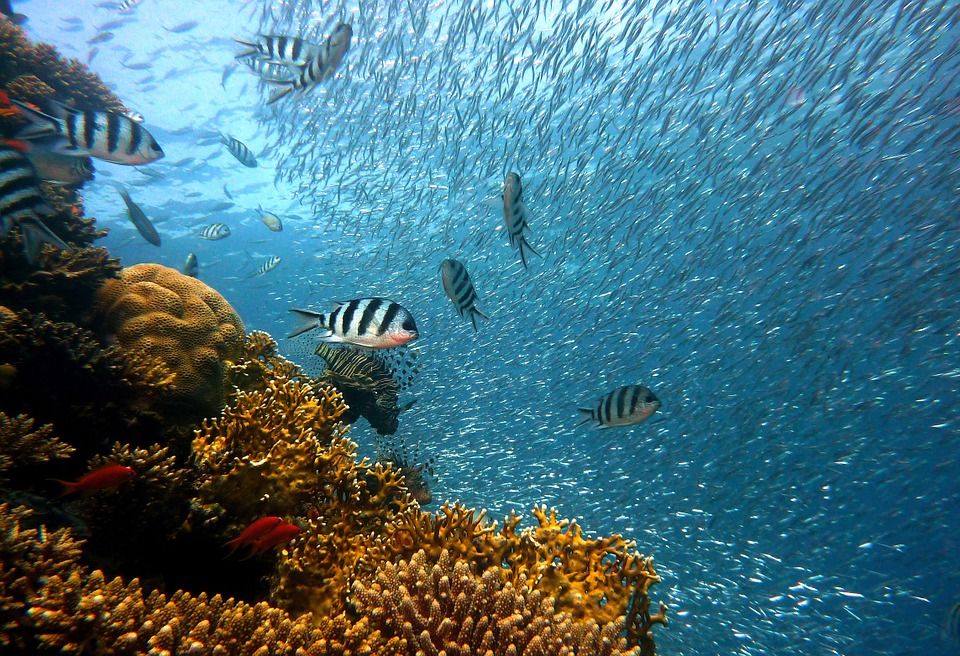22 May : International Day of Biological Diversity
International Day for Biological Diversity is observed annually on the 22 May and was instituted by the United Nations under the Convention for Biological Diversity (CBD). This observance is aimed at promoting understanding and awareness of biodiversity issues.
The theme for 2017 - Biodiversity and Sustainable Tourism was selected, given that 2017 is being observed as the International Year of Sustainable Tourism for Development as proclaimed by the United Nations General Assembly.
The Tourism Industry is the leading economic sector in most OECS Member States and relies heavily on the natural resources of the region. The Caribbean region is considered to be among the top 5 Biodiversity Hotspots of the World due to the rich diversity of its flora and fauna. However, these biological resources and fragile ecosystems are also threatened by unsustainable development practices including tourism-based pressures. The OECS Commission, through its environment and tourism programmes, encourages the mainstreaming of biodiversity in the tourism sector to increase income-generating opportunities and promote biodiversity conservation in the Eastern Caribbean in the context of sustainable development.
The OECS Commission, with support from the German Government through The German Federal Ministry for the Environment, Nature Conservation, Building and Nuclear Safety (BMBU) and The Nature Conservancy, has, during the past three years, managed a Livelihoods Support Fund (LSF). The LSF is a small grants facility under the Climate Resilient Eastern Caribbean Marine Managed Areas Network (ECMMAN) and is part of the International Climate Initiative (ICI). The LSF was established to finance microenterprises that would (a) Successfully demonstrate innovative and sustainable livelihood opportunities within coastal communities, and (b) Impact positively on the coastal resources.
Over fifteen (15) livelihood initiatives have been initiated under the LSF, many of them focussed on community-based tourism in six (6) OECS Member States. The capacity-building interventions have been in the provision of equipment, supplies and training.
Grenada - Two enterprises launched under the LSF, Sea Tonic Water Taxi services and K&J Snorkel Tours, have provided an economic alternative for displaced fishers from the Molinere-Beausejour Marine Protected Area, through the development of snorkel tours and water taxi services that will reduce their dependency on fisheries resources in the MBMPA.
Saint Lucia – Eco South Tours Inc, which operates in the Point Sables Environmental Protection Area (PSEPA), has enhanced its business enterprises through the addition of kayak and turtle-watching tours in the Savannes and Point Sables bays. The community organisation has also improved itsMangrove tours with the upgrading of the interpretation centre, stables and mangrove trails and the addition of bicycling tours.
St Kitts and Nevis – The successful establishment of dive moorings in the Narrows marine area will reduce the negative impacts of anchors on the coral reefs. The project to Enhance the Livelihood of Fishers and Dive Operators and the Creation of New Livelihoods by Installation and Maintenance of Dive Moorings in The Narrows was executed by Scuba Safaris Ltd and included training and certification of four fishers in scuba diving and mooring installation. Such training provides additional livelihoods opportunities for the fishers.
Dominica - At least 3 microenterprises that support sustainable tourism have been improved or established under the LSF. Project beneficiaries included the Portsmouth Association of Yacht Services (PAYS), the Centre Where Adolescent Learn to Love and Serve (CALLS) -through the Construction of an Engine Repair Centre, the upgrade and expansion of the Toucarie Beachfront Development Committee operations and the proposed addition of water sports to the Tantan Village Development Corporation tourism activities.
St Vincent and the Grenadines – Two dive shops and two fisherfolk cooperatives benefitted from training and provision of lionfish harvesting and processing equipment under the OECS ECMMAN LSF. Twenty-three (23) Fishers from the National Fisherfolk and Calliaqua Fisherfolk Cooperatives in Saint Vincent successfully completed PADI scuba dive training and certification in the South Coast Marine Conservation Area (SCMCA). The fishers were trained by Serenity Dive and will be used in Lionfish culling and data collection initiatives. Family members were also trained in lionfish handling and processing. The aim is the hosting of fish-fry events featuring lionfish recipes. These initiatives are expected to contribute to the management of the invasive lionfish species in the marine conservation area which is a key tourism site while providing income-generating opportunities for the project beneficiaries.
A Livelihoods Working Group (LWG) was also established to provide support for this ECMMAN component. The LWG comprised individuals and representatives from regional agencies with expertise in enterprise development, coastal and marine resource management and resource users including fishers.
The OECS is of the view(?) that these initiatives serve to demonstrate the successful linkages between biodiversity conservation and tourism in the sustainable development at the regional, national and community level.





